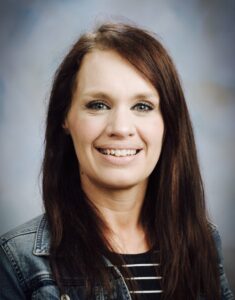Two faculty members have been selected as Leadership Fellows in the president’s office to guide the exploration of alternate budget models for CSU and to drive faculty, staff and student engagement in the process.
Professor Rob Mitchell in the Department of Management and Associate Professor and Extension Specialist Jennifer Martin in the Department of Animal Sciences – both members of the Faculty Council Executive Committee – will report to Executive Vice President Rick Miranda and gather feedback from the campus community this fall on the budget model that will best serve the university’s mission and priorities in the coming years.

“We are at a pivotal and exciting time for Colorado State University,” Martin said. “We are fortunate to be in a position where we can consider how modifying our budget model might allow us to pursue opportunities and strategic priorities.”
Strengthening resiliency, potential
“Given the rapidly changing external environment, it is important that we put ourselves in a position with our budget to be able to continue creating value for all our stakeholders and to strengthen the resiliency and long-term potential of CSU,” Mitchell said. “As the land-grant university for Colorado, we have a rich legacy to build on as we do this.”
In initial discussions with stakeholder groups over the past year, President Amy Parsons and Miranda have discussed the potential to transition to a new model. They’ve heard from those groups and others that there’s a desire for more engagement and transparency in the budget process, to better understand current budget decisions and help inform change in a new model for the future.
“We hope that a new budget model will enable us to more effectively drive resources to areas of highest need, and will incentivize units to consider productive growth in their programs, all to the benefit of our students,” Miranda said. “Since transparency is also of high value to the campus, we expect that a new budget model will provide additional insights to all on how our budget decisions align with our planning efforts.”
Currently, CSU uses an “incremental budget model” which means every year the budget process uses the previous year’s budget as a starting point or base, and the new proposed budget features incremental increases or decreases that arise from factors such as enrollment changes, tuition rates, changes in state funding and inflation.

The goal is to engage broadly across campus to inform and ensure faculty, staff and students are able to share feedback about the budgeting process.
“Faculty and all in our community at CSU care deeply about the institution, its mission and its current and future success,” said Faculty Council Chair Mendy Smith. “I encourage them to engage in this important process as those opportunities are announced to campus. It will enable faculty to gather information, ask questions, provide feedback and lend their voices to the budget model process as it evolves over time.”
Discovery phase
CSU has been in a discovery phase in recent months, collecting information and conducting research on various budget models that other universities use, to learn about alternatives to the incremental budgeting approach.
University of Arizona Professor Andrew Comrie, who serves as chief academic officer for the Arizona Board of Regents, visited CSU in early May to discuss budgeting processes with CSU leaders. Comrie, author of Like Nobody’s Business: An Insider’s Guide to How U.S. University Finances Really Work, is a nationally recognized expert on the topic, which has come to the forefront as many universities re-evaluate their traditional budget models.
David Attis, managing director of research for EAB (formerly known as the Education Advisory Board), also visited CSU in late June to provide his expertise on the subject. And in August, leaders from CU Boulder came to campus to discuss the process they used recently when adopting a new budget model.
“This is just the beginning of the listening process,” said Vice President for University Operations and Chief Financial Officer Brendan Hanlon. “We are looking forward to hearing thoughts from faculty, staff and students on the best ways to approach budget-setting.”
The initial events for collecting feedback are listed online at operations.colostate.edu, and additional opportunities will be added as they are scheduled. As the process moves forward, more information will be shared with the CSU community on the expected phases and timeline for the process, and how faculty, staff and students can engage and provide input.